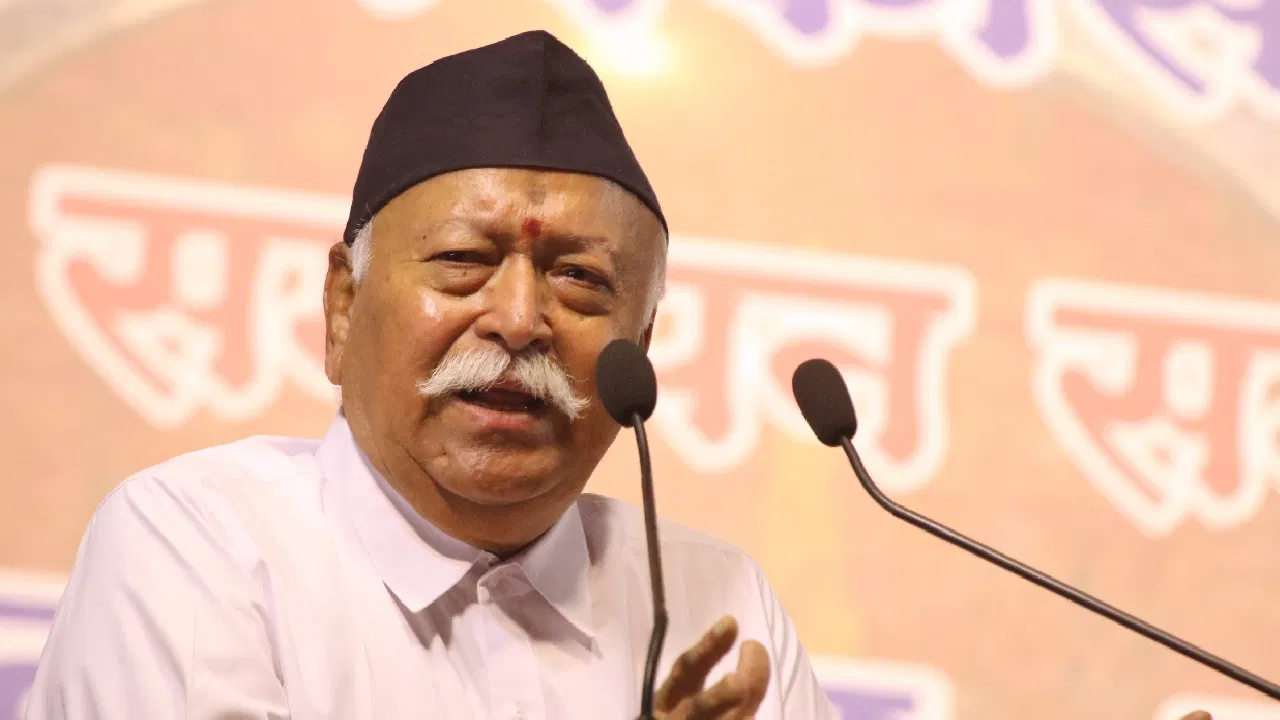RSS Chief Mohan Bhagwat recently spoke about a growing trend among the new generation to question the cultural heritage of the past, citing the influence of the modern education system. Speaking at an event at the Indira Gandhi National Centre for the Arts (IGNCA) on the existence of the mythical Saraswati river, Bhagwat remarked that young people today demand proof of India’s cultural legacy, as the education system doesn’t encourage faith and belief in ancient traditions.
“There is a section of people that has faith in the existence of the auspicious river Saraswati, and many believe it still exists today. However, our new generation demands evidence because our education system does not foster belief in cultural heritage,” Bhagwat said, underlining a gap in how traditional knowledge is conveyed to students.
Faith vs. Skepticism in Modern Education
Bhagwat emphasized that while there is a large segment of the population that holds unwavering faith in India’s rich cultural traditions, the current educational structure fosters skepticism. According to him, the education system has, for decades, encouraged students to question rather than accept historical and cultural beliefs, leading to a disconnect between young people and India’s deep-rooted heritage.
“The education system, which has persisted for so many years, compels students to question everything, even to the point of disbelieving in our heritage,” Bhagwat stated. He also highlighted that with the new National Education Policy (NEP), there is hope for a shift in this mindset, potentially allowing more room for faith-based understanding and reverence for India’s past.
The Significance of the Saraswati River
The event where Bhagwat spoke was centered on the existence of the Saraswati river, which has been mentioned extensively in ancient Indian scriptures but whose physical traces have largely vanished. This river, according to Hindu tradition, was once a significant part of India’s cultural and spiritual landscape. Bhagwat pointed out that for centuries, people have believed in its existence, but modern demands for scientific validation challenge these beliefs.
“Our culture and history are embedded with the presence of the Saraswati river, but the younger generation today, because of the way they are educated, are seeking concrete proof of its existence,” Bhagwat said. He suggested that this is a byproduct of an education system that neglects traditional beliefs, focusing instead on empirical evidence.
Murali Manohar Joshi’s Perspective
Former Human Resource Development Minister and senior BJP leader Murali Manohar Joshi, who was also present at the event, shared his thoughts on how India’s history has been questioned and sometimes misrepresented in academic curricula. During his tenure, Joshi spearheaded efforts to revise the history syllabus in Indian textbooks, particularly focusing on the portrayal of various historical communities, such as the Jats, Gurjars, and Sikhs.
Joshi reflected on his efforts to ensure that India’s rich and diverse history was properly represented. He recounted accusations made against him in Parliament, where he was criticized for allegedly attempting to impose Sanskrit and promote a particular narrative of Indian history.
“Many intellectuals, whom I call so-called intellectuals, have always tried to tarnish our history and heritage. There were accusations against me for trying to teach everyone Sanskrit, but these steps were taken to preserve the richness of our cultural past,” Joshi said. He expressed dismay at the ongoing debates over India’s historical and cultural legacy, particularly when sections of society continue to challenge the existence of well-established elements of India’s past, such as the Saraswati river.
The Broader Debate
Bhagwat and Joshi’s remarks bring to light a broader discussion in contemporary India about the balance between faith and empirical evidence, especially in the context of cultural heritage. The increasing skepticism among younger generations, driven by the current education system’s focus on scientific inquiry, raises important questions about how India’s ancient traditions and cultural narratives will be preserved and passed on.
With the new National Education Policy aiming to incorporate Indian knowledge systems into modern education, there is a sense that the gap between faith and scientific understanding could be bridged, allowing for a more holistic appreciation of India’s rich cultural heritage. However, the debate on how much credence should be given to ancient traditions, such as the existence of the Saraswati river, is likely to continue.







